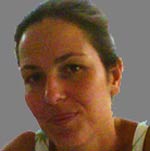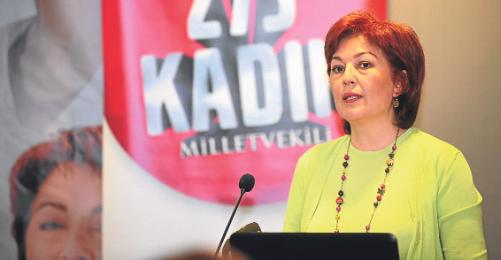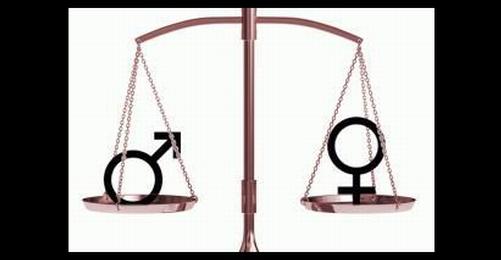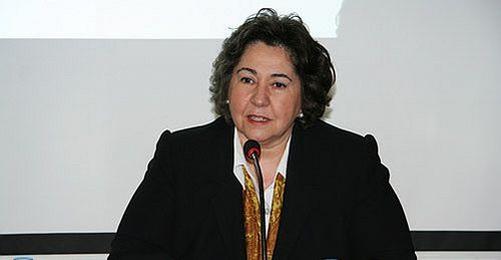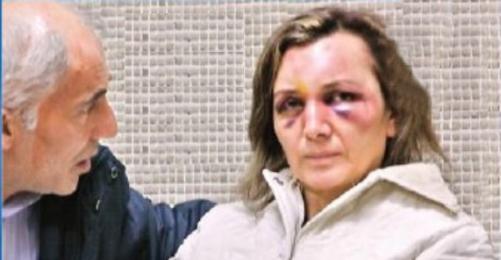These are the thoughts of three Turkish Cypriot women of different ages, jobs and roots. These are the common thoughts of retired teacher Yucel Aygin, retired banker Onur Derya, and housewife Handan Ozluturk.
These three women, who have, for years, been called "betrayers" because they advocated peace and solution in Cyprus, today feel the hope and happiness of being so close to peace.
Being the child of an unrecognized country
"My childhood, my youth went by in sadness and concern about the future. I want to look to the future with hope," said 50-years-old retired banker Onur Derya.
"What will happen to our children?" she asked.
"We are raising them in the best possible way. But they cannot find jobs because they are the children of an unrecognized country. I want my children to come back to Cyprus and to stay here."
Derya has two daughters. One is a student in Istanbul; the other is looking for a job in Brussels.
"Everyone in our choir has forgotten about the past"
Onur Derya has been the member of the Bi-Communal Choir, which was formed in 1996. She came across her Greekcypriot friends from the choir at Wednesday's peace demonstration.
"I saw that they were sad," she said. "AKEL's decision shocked them too. We will go to AKEL's office and sing our common peace songs in Turkish and Greek," she told Bianet.
"We knew we would not be able to go anywhere with the past. We wanted to see what we could accomplish together," said Derya as she explained their reasons for forming a bi-communal choir.
"We have always felt love and friendship toward each other. We have forgotten about the past. We talk about past pains sometimes; but only to heal our wounds. We are only looking to the future now."
"Those against the plan are also spending efforts"
When she thinks of the past, Derya remembers the "loneliness of those who wanted peace."
"We have broken our shell. We have come open. It was not like this in the past. Everyone would be scared of losing their jobs, their food. People are now showing that they want peace," said Derya, and talked about being a betrayer:
"I used to work at the Cyprus Credit Bank, owned by a relative of President Rauf Denktas. I was always pushed aside because I wanted peace. I was never promoted. I was called a betrayer. We were always excluded because we loved our country and because we wanted to live here."
"Today, we are very close to peace. We are not alone. But those who do not want a solution are also spending efforts. Men located themselves at coffee shops in villages. Women of the National Unity Party (UBP) have begun house visits. They are especially trying to scare people who came from Turkey and settled in Cyprus."
"Those who came to help were my Greek Cypriot neighbors"
"We used to live on the Green Line before 1974. There was no enmity where we lived. We were on the south when fighting continued in the north. Turkish troops had landed on the north and there were no soldiers to protect us. I was scared too," said retired teacher Yucel Aygin.
"All shops were closed and I had a small child. I had days when I did not know what to feed my child. I am not accusing my husband of irresponsibility but this like a task given to me by birth. Those who came to help me were my Greek Cypriot neighbors," she told.
Aygin talked about her Greekcypriot neighbors who gently knocked on her door at night and left bread and milk at her door. She emphasized that many Turkish and Greekcypriots had similar memories.
"There is no enmity between the two communities," she added. "Enmity is between those higher up."
Aygin, who had to leave her house and immigrate to the north following the Turkish intervention, did not see her neighbors until the travel ban was lifted last year. When the Turkish Cypriot administration allowed limited travel between the two sides, she went to her old neighborhood with her husband, who is also a retired teacher. They looked for their Greekcypriot neighbor- also a teacher.
"They had moved. No one at the coffee shop knew where he or she was. When they found out that we had come from the north, they called the local official. He remembered our neighbor. He told us the way and sent someone with us to guide us there. The guide took us to our friends' house. They had been waiting for us. My friend said he had looked for us everyday at the bus station where the busses from the north came. We have always been in touch since that day."
Aygin believes that, with good will, the two communities will learn to live together again.
"There are fanatics among both Turkish and Greek Cypriots," said Aygin, and added: "For peace, those responsible for the pains that we went through should be punished. If we really want peace, we should first clean up our own society."
A Yugoslavia migrant Turk in Cyprus
35-year-old Handan Ozluturk is a mainland Turk born in Izmir. Her family immigrated to Turkey from Yugoslavia. She settled in Cyprus 11 years ago after marrying a Turkish Cypriot. Her husband owns a sports center.
Ozluturk was at Wednesday's peace demonstration like Aygin and Derya. She is excited.
"Because I come from Turkey, I support a 'yes' vote, first for Turkey's, and then for Cyprus' interests," told Bianet.
Ozluturk's house and her husband's workplace actually belong to Greek Cypriots.
Her husband's family left their property on the south. She knows she would have to move from her house and the workplace if the Annan plan is approved.
But she thinks "that is better then living in uncertainty."
"Our house, our workplace has two title deeds. We have one of the deeds and no one in the world recognizes it. The other deed is at a person we don't know. But everyone recognizes that deed. We have been making some small changes to the house we live in, but we cannot call it 'home.' We are always in fear. We want to be sure about our life and possessions."
Ozluturk said the Greekcypriot owner of their workplace came to visit after the travel ban between the two communities was lifted. Her and her husband later went to visit him.
She said they had met many Greek Cypriots during their visits to the south on weekends. "We become friends with some of them," she said.
"The only difference between them and my friends here is the fact that they live in Limassol and we communicate in English. We will get over the language problem with the Annan plan. Turkish Cypriot kids will learn Greek and Greek Cypriot kids will learn Turkish. Apart from that, our traditions, habits and food are already very similar." (BB/EA/YE)




